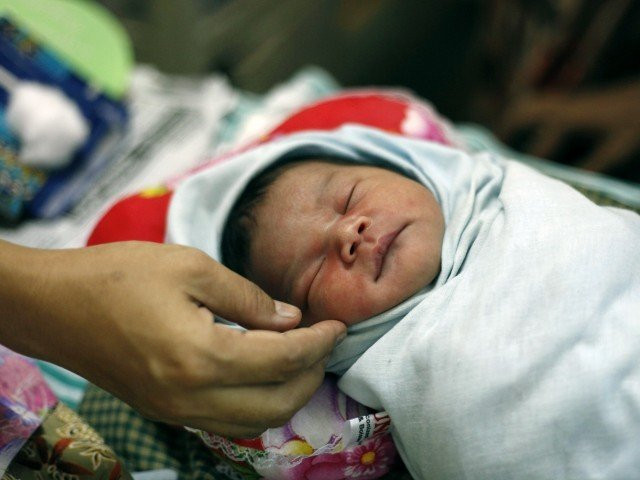Birth control: Uncoordinated efforts affect contraceptive drive
Health officials say it is necessary to link all organisations working for the cause

PHOTO: REUTERS/FILE
Although the health department and other organisations are making efforts to raise awareness on contraceptives among the public, there are missing links leading to problems in the campaign.
The disconnect
The Khyber-Pakhtunkhwa Population Welfare Department (PWD) and some non-governmental organisations have been working in different areas for the purpose. In addition to PWD, the health department, Green Star, Family Planning Association of Pakistan, Marie Stopes Society and National Trust for Population Welfare (Natpow) also offer services, some free of cost. However, since they all work separately, there have been no efforts to centralise. Although there had been proposals to establish a link between these entities, it never materialised.

“Lady health workers (LHW), PWD employees and private entities all work at the same time, sometimes even in the same locations, but the records are maintained separately,” a senior health official said. “If they work together and share details, all of them will be in a better position to raise awareness and identify the loopholes. This will enable them to have a positive impact on the contraceptive prevalence rate (CPR) and couple year protection (CYP).”
The official, requesting anonymity, said the message sometimes does not reach a couple as LHWs have access only to 54% area in K-P and the pair end up unwillingly conceiving. As a result, they opt for an abortion. However, if they are told some tablets work 72 hours after conceiving, an abortion can be prevented, he highlighted.
Contraceptives in use
According to data for 2014-15, a copy of which is available with The Express Tribune, some 374,812 families visited different health facilities being run by the health department as well as 532 family welfare centres of PWD across K-P.
The data obtained from the health department revealed various methods were used to plan families. This included the distribution of 723,414 condoms, 112,443 combined oral contraceptive (COC) pills, 28,276 progestogen-only pills (POP) and 123,071 Depo-Provera, a long-acting hormonal form of birth control administered as an injection.
The data stated some people opted for other preventive measures such as 33,316 intra uterine devices (IUD), a small plastic and copper contraceptive device; 7,018 tubal ligation, 423 vasectomies and 2,651 opted for birth control implants. The latter is a surgery that can only be performed at major health facilities.
All of these contraceptive measures are for women except for condoms and vasectomies.
Health seeking districts
The documents said most family visits (71,872) were reported from the provincial capital followed by 36,768 from Swat, 34,197 from Haripur and 23,291 from Charsadda district. The lowest number of visits, 165, was reported from Kohistan district.
The 129,961 condoms distributed in Charsadda district was the highest followed by 51,994 in Peshawar and 50,985 in Mansehra district, whereas only 84 condoms were given to couples in Kohistan during 2015. Around 351 couples, the highest number in K-P, opted for vasectomy in Peshawar, followed by 15 each in Chitral and Charsadda districts.
Some 1,776 used the implant method in Swat followed by 428 officially registered cases in Haripur.
None of Kohistan’s residents opted for tubal ligation, a vasectomy or an implant.
When contacted, PWD Secretary Abdul Wali Khan said nine methods were being offered for contraceptive methods and while a couple of them were available at major hospitals, the others were either free or attainable at subsidised rates.
Published in The Express Tribune, February 23rd, 2016.













COMMENTS
Comments are moderated and generally will be posted if they are on-topic and not abusive.
For more information, please see our Comments FAQ